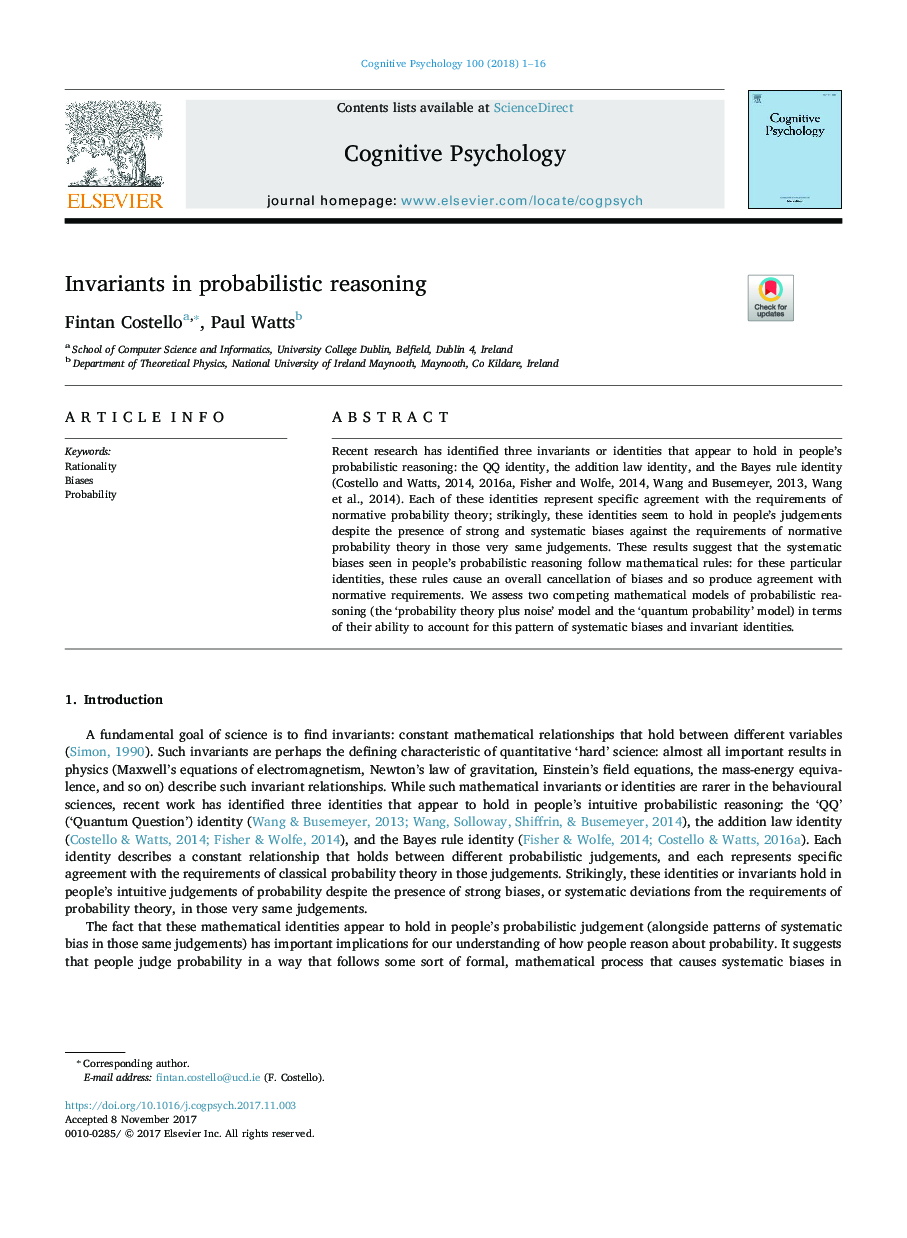| Article ID | Journal | Published Year | Pages | File Type |
|---|---|---|---|---|
| 7272670 | Cognitive Psychology | 2018 | 16 Pages |
Abstract
Recent research has identified three invariants or identities that appear to hold in people's probabilistic reasoning: the QQ identity, the addition law identity, and the Bayes rule identity (Costello and Watts, 2014, 2016a, Fisher and Wolfe, 2014, Wang and Busemeyer, 2013, Wang et al., 2014). Each of these identities represent specific agreement with the requirements of normative probability theory; strikingly, these identities seem to hold in people's judgements despite the presence of strong and systematic biases against the requirements of normative probability theory in those very same judgements. These results suggest that the systematic biases seen in people's probabilistic reasoning follow mathematical rules: for these particular identities, these rules cause an overall cancellation of biases and so produce agreement with normative requirements. We assess two competing mathematical models of probabilistic reasoning (the 'probability theory plus noise' model and the 'quantum probability' model) in terms of their ability to account for this pattern of systematic biases and invariant identities.
Keywords
Related Topics
Life Sciences
Neuroscience
Cognitive Neuroscience
Authors
Fintan Costello, Paul Watts,
